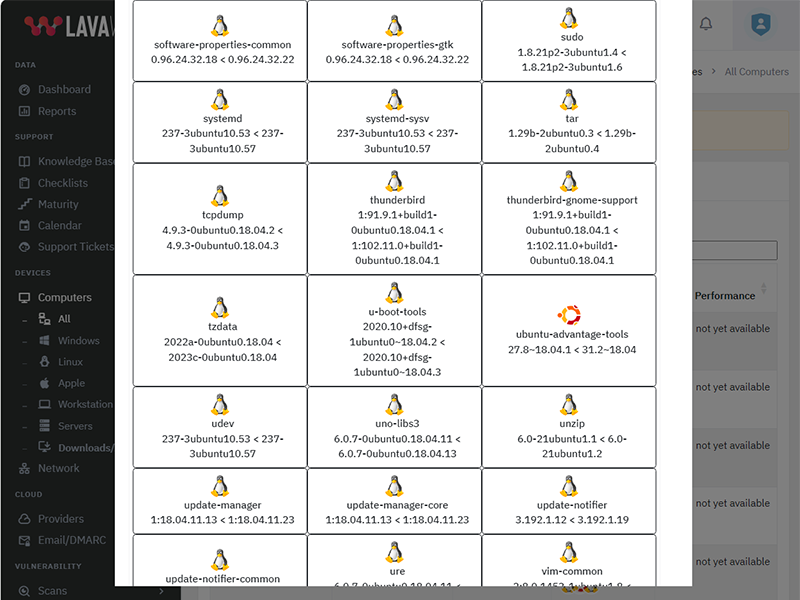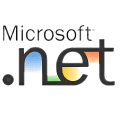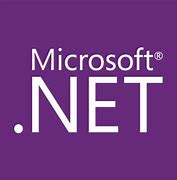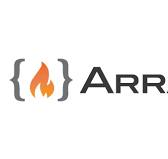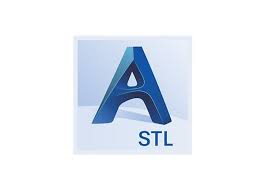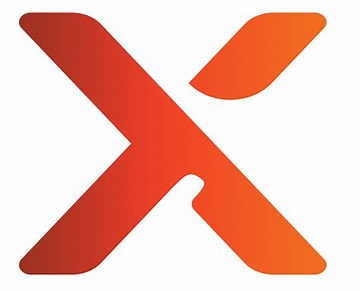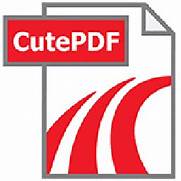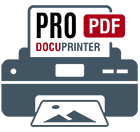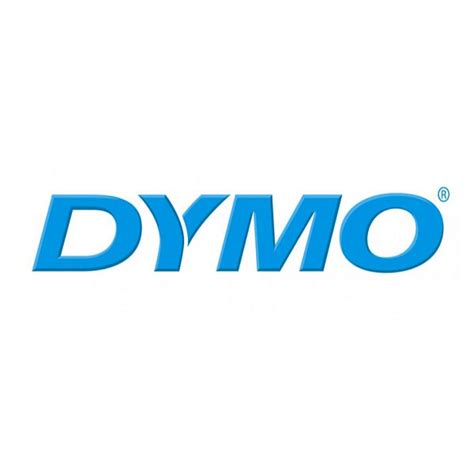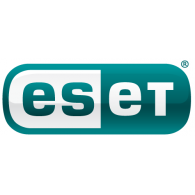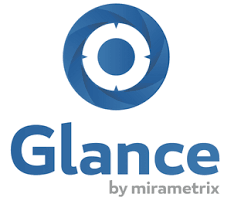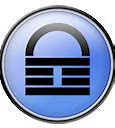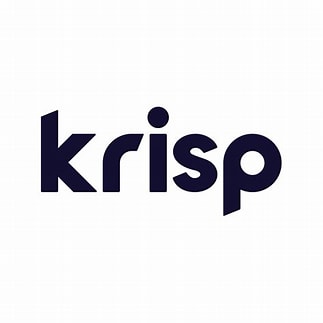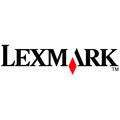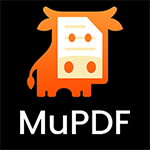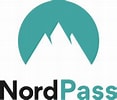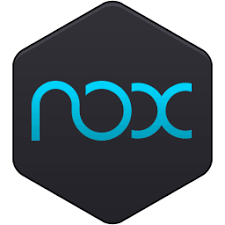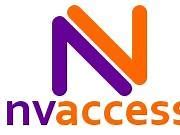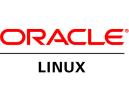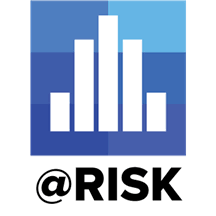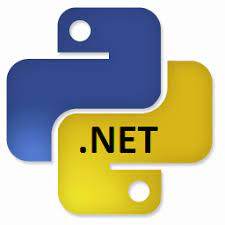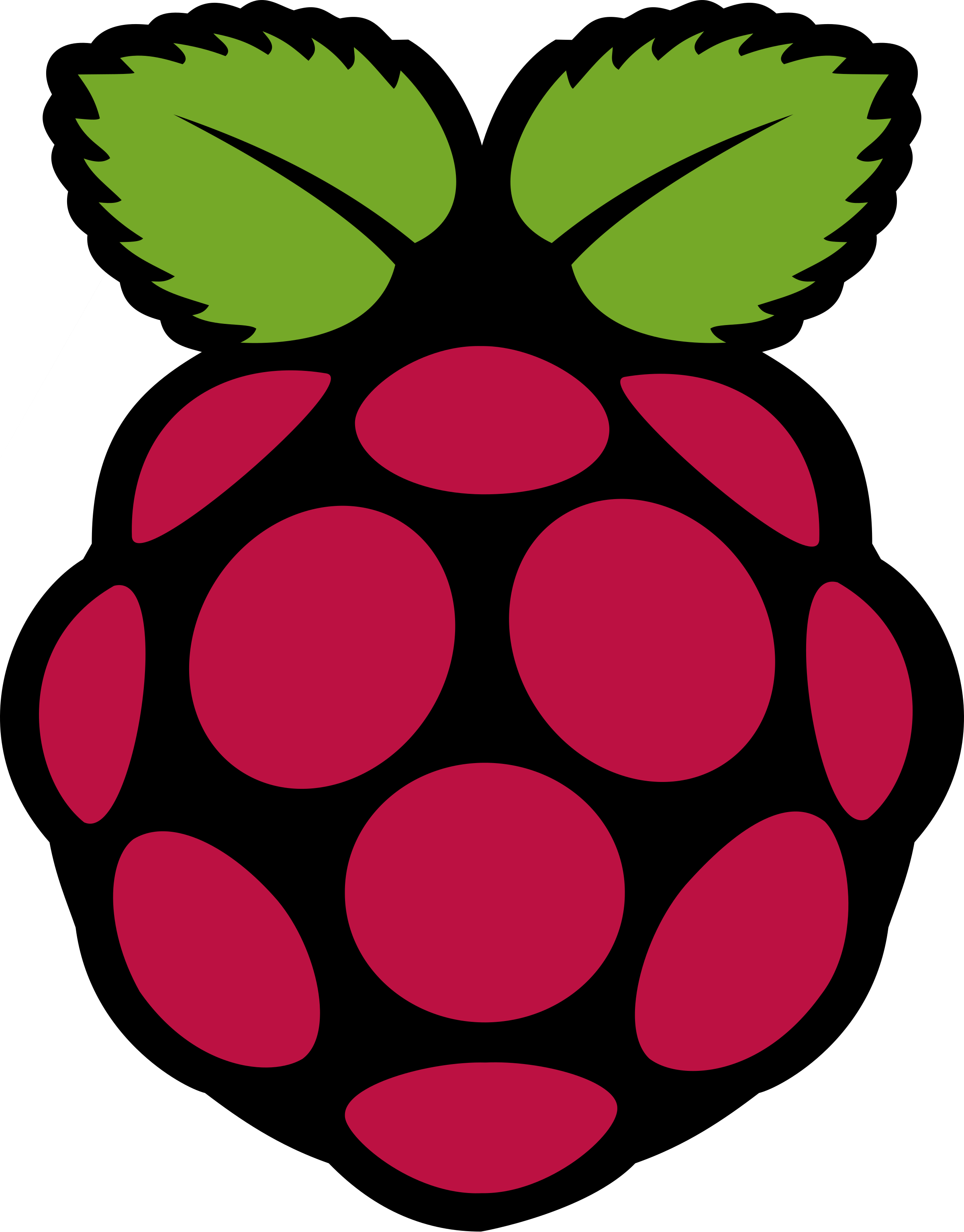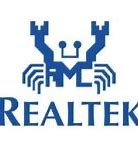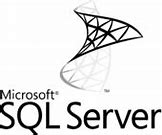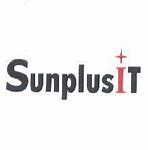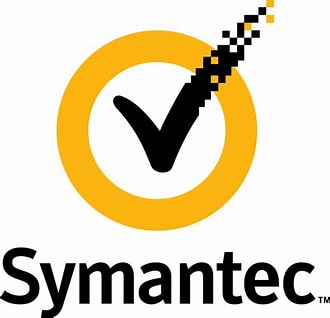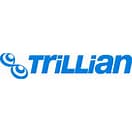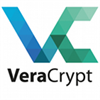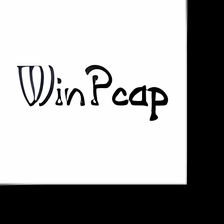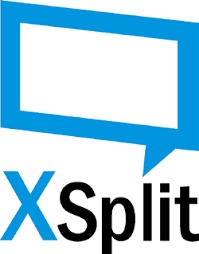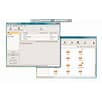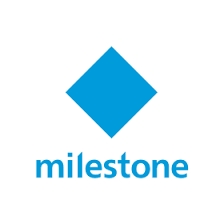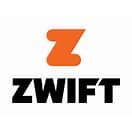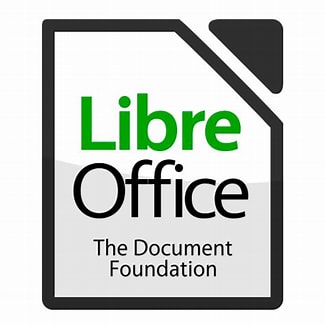
Update LibreOffice to version 25.2.1
What patches are you missing?
CVE Vulnerabilities for LibreOffice
| CVE | Published | Severity | Details | Exploitability | Impact | Vector |
| CVE‑2024‑7788 | 2024‑09‑17 15:15:14 | HIGH (8) | Improper Digital Signature Invalidation vulnerability in Zip Repair Mode of The Document Foundation LibreOffice allows Signature forgery vulnerability in LibreOfficeThis issue affects LibreOffice: from 24.2 before < 24.2.5. | 2 | 6 | LOCAL |
| CVE‑2023‑6186 | 2023‑12‑11 12:15:08 | HIGH (8) | Insufficient macro permission validation of The Document Foundation LibreOffice allows an attacker to execute built-in macros without warning. In affected versions LibreOffice supports hyperlinks with macro or similar built-in command targets that can be executed when activated without warning the user. | 2 | 6 | ADJACENT_NETWORK |
| CVE‑2023‑6185 | 2023‑12‑11 12:15:07 | HIGH (9) | Improper Input Validation vulnerability in GStreamer integration of The Document Foundation LibreOffice allows an attacker to execute arbitrary GStreamer plugins. In affected versions the filename of the embedded video is not sufficiently escaped when passed to GStreamer enabling an attacker to run arbitrary gstreamer plugins depending on what plugins are installed on the target system. | 3 | 6 | NETWORK |
| CVE‑2023‑2255 | 2023‑05‑25 20:15:09 | MEDIUM (5) | Improper access control in editor components of The Document Foundation LibreOffice allowed an attacker to craft a document that would cause external links to be loaded without prompt. In the affected versions of LibreOffice documents that used "floating frames" linked to external files, would load the contents of those frames without prompting the user for permission to do so. This was inconsistent with the treatment of other linked content in LibreOffice. This issue affects: The Document Foundation LibreOffice 7.4 versions prior to 7.4.7; 7.5 versions prior to 7.5.3. | 4 | 1 | NETWORK |
| CVE‑2023‑1183 | 2023‑07‑10 16:15:49 | MEDIUM (6) | A flaw was found in the Libreoffice package. An attacker can craft an odb containing a "database/script" file with a SCRIPT command where the contents of the file could be written to a new file whose location was determined by the attacker. | 2 | 4 | LOCAL |
| CVE‑2023‑0950 | 2023‑05‑25 20:15:09 | HIGH (8) | Improper Validation of Array Index vulnerability in the spreadsheet component of The Document Foundation LibreOffice allows an attacker to craft a spreadsheet document that will cause an array index underflow when loaded. In the affected versions of LibreOffice certain malformed spreadsheet formulas, such as AGGREGATE, could be created with less parameters passed to the formula interpreter than it expected, leading to an array index underflow, in which case there is a risk that arbitrary code could be executed. This issue affects: The Document Foundation LibreOffice 7.4 versions prior to 7.4.6; 7.5 versions prior to 7.5.1. | 2 | 6 | LOCAL |
| CVE‑2022‑3140 | 2022‑10‑11 21:15:16 | MEDIUM (6) | LibreOffice supports Office URI Schemes to enable browser integration of LibreOffice with MS SharePoint server. An additional scheme 'vnd.libreoffice.command' specific to LibreOffice was added. In the affected versions of LibreOffice links using that scheme could be constructed to call internal macros with arbitrary arguments. Which when clicked on, or activated by document events, could result in arbitrary script execution without warning. This issue affects: The Document Foundation LibreOffice 7.4 versions prior to 7.4.1; 7.3 versions prior to 7.3.6. | 3 | 3 | NETWORK |
| CVE‑2022‑26307 | 2022‑07‑25 15:15:09 | HIGH (9) | LibreOffice supports the storage of passwords for web connections in the user’s configuration database. The stored passwords are encrypted with a single master key provided by the user. A flaw in LibreOffice existed where master key was poorly encoded resulting in weakening its entropy from 128 to 43 bits making the stored passwords vulerable to a brute force attack if an attacker has access to the users stored config. This issue affects: The Document Foundation LibreOffice 7.2 versions prior to 7.2.7; 7.3 versions prior to 7.3.3. | 3 | 6 | NETWORK |
| CVE‑2022‑26306 | 2022‑07‑25 15:15:09 | HIGH (8) | LibreOffice supports the storage of passwords for web connections in the user’s configuration database. The stored passwords are encrypted with a single master key provided by the user. A flaw in LibreOffice existed where the required initialization vector for encryption was always the same which weakens the security of the encryption making them vulnerable if an attacker has access to the user's configuration data. This issue affects: The Document Foundation LibreOffice 7.2 versions prior to 7.2.7; 7.3 versions prior to 7.3.1. | 4 | 4 | NETWORK |
| CVE‑2022‑26305 | 2022‑07‑25 15:15:09 | HIGH (8) | An Improper Certificate Validation vulnerability in LibreOffice existed where determining if a macro was signed by a trusted author was done by only matching the serial number and issuer string of the used certificate with that of a trusted certificate. This is not sufficient to verify that the macro was actually signed with the certificate. An adversary could therefore create an arbitrary certificate with a serial number and an issuer string identical to a trusted certificate which LibreOffice would present as belonging to the trusted author, potentially leading to the user to execute arbitrary code contained in macros improperly trusted. This issue affects: The Document Foundation LibreOffice 7.2 versions prior to 7.2.7; 7.3 versions prior to 7.3.1. | 2 | 6 | NETWORK |
| CVE‑2021‑25636 | 2022‑02‑24 15:15:22 | HIGH (8) | LibreOffice supports digital signatures of ODF documents and macros within documents, presenting visual aids that no alteration of the document occurred since the last signing and that the signature is valid. An Improper Certificate Validation vulnerability in LibreOffice allowed an attacker to create a digitally signed ODF document, by manipulating the documentsignatures.xml or macrosignatures.xml stream within the document to contain both "X509Data" and "KeyValue" children of the "KeyInfo" tag, which when opened caused LibreOffice to verify using the "KeyValue" but to report verification with the unrelated "X509Data" value. This issue affects: The Document Foundation LibreOffice 7.2 versions prior to 7.2.5. | 4 | 4 | NETWORK |
| CVE‑2021‑25634 | 2021‑10‑12 14:15:08 | HIGH (8) | LibreOffice supports digital signatures of ODF documents and macros within documents, presenting visual aids that no alteration of the document occurred since the last signing and that the signature is valid. An Improper Certificate Validation vulnerability in LibreOffice allowed an attacker to modify a digitally signed ODF document to insert an additional signing time timestamp which LibreOffice would incorrectly present as a valid signature signed at the bogus signing time. This issue affects: The Document Foundation LibreOffice 7-0 versions prior to 7.0.6; 7-1 versions prior to 7.1.2. | 4 | 4 | NETWORK |
| CVE‑2021‑25633 | 2021‑10‑11 17:15:08 | HIGH (8) | LibreOffice supports digital signatures of ODF documents and macros within documents, presenting visual aids that no alteration of the document occurred since the last signing and that the signature is valid. An Improper Certificate Validation vulnerability in LibreOffice allowed an attacker to create a digitally signed ODF document, by manipulating the documentsignatures.xml or macrosignatures.xml stream within the document to combine multiple certificate data, which when opened caused LibreOffice to display a validly signed indicator but whose content was unrelated to the signature shown. This issue affects: The Document Foundation LibreOffice 7-0 versions prior to 7.0.6; 7-1 versions prior to 7.1.2. | 4 | 4 | NETWORK |
| CVE‑2021‑25631 | 2021‑05‑03 12:15:07 | HIGH (9) | In the LibreOffice 7-1 series in versions prior to 7.1.2, and in the 7-0 series in versions prior to 7.0.5, the denylist can be circumvented by manipulating the link so it doesn't match the denylist but results in ShellExecute attempting to launch an executable type. | 3 | 6 | NETWORK |
| CVE‑2020‑12803 | 2020‑06‑08 16:15:10 | MEDIUM (7) | ODF documents can contain forms to be filled out by the user. Similar to HTML forms, the contained form data can be submitted to a URI, for example, to an external web server. To create submittable forms, ODF implements the XForms W3C standard, which allows data to be submitted without the need for macros or other active scripting Prior to version 6.4.4 LibreOffice allowed forms to be submitted to any URI, including file: URIs, enabling form submissions to overwrite local files. User-interaction is required to submit the form, but to avoid the possibility of malicious documents engineered to maximize the possibility of inadvertent user submission this feature has now been limited to http[s] URIs, removing the possibility to overwrite local files. This issue affects: The Document Foundation LibreOffice versions prior to 6.4.4. | 3 | 4 | NETWORK |
| CVE‑2020‑12802 | 2020‑06‑08 16:15:10 | MEDIUM (5) | LibreOffice has a 'stealth mode' in which only documents from locations deemed 'trusted' are allowed to retrieve remote resources. This mode is not the default mode, but can be enabled by users who want to disable LibreOffice's ability to include remote resources within a document. A flaw existed where remote graphic links loaded from docx documents were omitted from this protection prior to version 6.4.4. This issue affects: The Document Foundation LibreOffice versions prior to 6.4.4. | 4 | 1 | NETWORK |
| CVE‑2020‑12801 | 2020‑05‑18 15:15:11 | MEDIUM (5) | If LibreOffice has an encrypted document open and crashes, that document is auto-saved encrypted. On restart, LibreOffice offers to restore the document and prompts for the password to decrypt it. If the recovery is successful, and if the file format of the recovered document was not LibreOffice's default ODF file format, then affected versions of LibreOffice default that subsequent saves of the document are unencrypted. This may lead to a user accidentally saving a MSOffice file format document unencrypted while believing it to be encrypted. This issue affects: LibreOffice 6-3 series versions prior to 6.3.6; 6-4 series versions prior to 6.4.3. | 4 | 1 | NETWORK |
| CVE‑2019‑9855 | 2019‑09‑06 19:15:12 | CRITICAL (10) | LibreOffice is typically bundled with LibreLogo, a programmable turtle vector graphics script, which can execute arbitrary python commands contained with the document it is launched from. LibreOffice also has a feature where documents can specify that pre-installed scripts can be executed on various document script events such as mouse-over, etc. Protection was added to block calling LibreLogo from script event handers. However a Windows 8.3 path equivalence handling flaw left LibreOffice vulnerable under Windows that a document could trigger executing LibreLogo via a Windows filename pseudonym. This issue affects: Document Foundation LibreOffice 6.2 versions prior to 6.2.7; 6.3 versions prior to 6.3.1. | 4 | 6 | NETWORK |
| CVE‑2019‑9854 | 2019‑09‑06 19:15:12 | HIGH (8) | LibreOffice has a feature where documents can specify that pre-installed macros can be executed on various script events such as mouse-over, document-open etc. Access is intended to be restricted to scripts under the share/Scripts/python, user/Scripts/python sub-directories of the LibreOffice install. Protection was added, to address CVE-2019-9852, to avoid a directory traversal attack where scripts in arbitrary locations on the file system could be executed by employing a URL encoding attack to defeat the path verification step. However this protection could be bypassed by taking advantage of a flaw in how LibreOffice assembled the final script URL location directly from components of the passed in path as opposed to solely from the sanitized output of the path verification step. This issue affects: Document Foundation LibreOffice 6.2 versions prior to 6.2.7; 6.3 versions prior to 6.3.1. | 2 | 6 | LOCAL |
| CVE‑2019‑9853 | 2019‑09‑27 16:15:11 | HIGH (8) | LibreOffice documents can contain macros. The execution of those macros is controlled by the document security settings, typically execution of macros are blocked by default. A URL decoding flaw existed in how the urls to the macros within the document were processed and categorized, resulting in the possibility to construct a document where macro execution bypassed the security settings. The documents were correctly detected as containing macros, and prompted the user to their existence within the documents, but macros within the document were subsequently not controlled by the security settings allowing arbitrary macro execution This issue affects: LibreOffice 6.2 series versions prior to 6.2.7; LibreOffice 6.3 series versions prior to 6.3.1. | 2 | 6 | LOCAL |
| CVE‑2019‑9852 | 2019‑08‑15 22:15:22 | HIGH (8) | LibreOffice has a feature where documents can specify that pre-installed macros can be executed on various script events such as mouse-over, document-open etc. Access is intended to be restricted to scripts under the share/Scripts/python, user/Scripts/python sub-directories of the LibreOffice install. Protection was added, to address CVE-2018-16858, to avoid a directory traversal attack where scripts in arbitrary locations on the file system could be executed. However this new protection could be bypassed by a URL encoding attack. In the fixed versions, the parsed url describing the script location is correctly encoded before further processing. This issue affects: Document Foundation LibreOffice versions prior to 6.2.6. | 2 | 6 | LOCAL |
| CVE‑2019‑9851 | 2019‑08‑15 22:15:22 | CRITICAL (10) | LibreOffice is typically bundled with LibreLogo, a programmable turtle vector graphics script, which can execute arbitrary python commands contained with the document it is launched from. Protection was added, to address CVE-2019-9848, to block calling LibreLogo from document event script handers, e.g. mouse over. However LibreOffice also has a separate feature where documents can specify that pre-installed scripts can be executed on various global script events such as document-open, etc. In the fixed versions, global script event handlers are validated equivalently to document script event handlers. This issue affects: Document Foundation LibreOffice versions prior to 6.2.6. | 4 | 6 | NETWORK |
| CVE‑2019‑9850 | 2019‑08‑15 22:15:22 | CRITICAL (10) | LibreOffice is typically bundled with LibreLogo, a programmable turtle vector graphics script, which can execute arbitrary python commands contained with the document it is launched from. LibreOffice also has a feature where documents can specify that pre-installed scripts can be executed on various document script events such as mouse-over, etc. Protection was added, to address CVE-2019-9848, to block calling LibreLogo from script event handers. However an insufficient url validation vulnerability in LibreOffice allowed malicious to bypass that protection and again trigger calling LibreLogo from script event handlers. This issue affects: Document Foundation LibreOffice versions prior to 6.2.6. | 4 | 6 | NETWORK |
| CVE‑2019‑9849 | 2019‑07‑17 12:15:11 | MEDIUM (4) | LibreOffice has a 'stealth mode' in which only documents from locations deemed 'trusted' are allowed to retrieve remote resources. This mode is not the default mode, but can be enabled by users who want to disable LibreOffice's ability to include remote resources within a document. A flaw existed where bullet graphics were omitted from this protection prior to version 6.2.5. This issue affects: Document Foundation LibreOffice versions prior to 6.2.5. | 3 | 1 | NETWORK |
| CVE‑2019‑9848 | 2019‑07‑17 12:15:11 | CRITICAL (10) | LibreOffice has a feature where documents can specify that pre-installed scripts can be executed on various document events such as mouse-over, etc. LibreOffice is typically also bundled with LibreLogo, a programmable turtle vector graphics script, which can be manipulated into executing arbitrary python commands. By using the document event feature to trigger LibreLogo to execute python contained within a document a malicious document could be constructed which would execute arbitrary python commands silently without warning. In the fixed versions, LibreLogo cannot be called from a document event handler. This issue affects: Document Foundation LibreOffice versions prior to 6.2.5. | 4 | 6 | NETWORK |
| CVE‑2019‑9847 | 2019‑05‑09 14:29:01 | MEDIUM (7) | A vulnerability in LibreOffice hyperlink processing allows an attacker to construct documents containing hyperlinks pointing to the location of an executable on the target users file system. If the hyperlink is activated by the victim the executable target is unconditionally launched. Under Windows and macOS when processing a hyperlink target explicitly activated by the user there was no judgment made on whether the target was an executable file, so such executable targets were launched unconditionally. This issue affects: All LibreOffice Windows and macOS versions prior to 6.1.6; LibreOffice Windows and macOS versions in the 6.2 series prior to 6.2.3. | 0 | 0 | NETWORK |
| CVE‑2018‑6871 | 2018‑02‑09 06:29:00 | MEDIUM (5) | LibreOffice before 5.4.5 and 6.x before 6.0.1 allows remote attackers to read arbitrary files via =WEBSERVICE calls in a document, which use the COM.MICROSOFT.WEBSERVICE function. | 0 | 0 | NETWORK |
| CVE‑2018‑18688 | 2021‑01‑07 18:15:12 | MEDIUM (5) | The Portable Document Format (PDF) specification does not provide any information regarding the concrete procedure of how to validate signatures. Consequently, an Incremental Saving vulnerability exists in multiple products. When an attacker uses the Incremental Saving feature to add pages or annotations, Body Updates are displayed to the user without any action by the signature-validation logic. This affects Foxit Reader before 9.4 and PhantomPDF before 8.3.9 and 9.x before 9.4. It also affects LibreOffice, Master PDF Editor, Nitro Pro, Nitro Reader, Nuance Power PDF Standard, PDF Editor 6 Pro, PDFelement6 Pro, PDF Studio Viewer 2018, PDF Studio Pro, Perfect PDF 10 Premium, and Perfect PDF Reader. | 4 | 1 | NETWORK |
| CVE‑2018‑16858 | 2019‑03‑25 18:29:00 | HIGH (8) | It was found that libreoffice before versions 6.0.7 and 6.1.3 was vulnerable to a directory traversal attack which could be used to execute arbitrary macros bundled with a document. An attacker could craft a document, which when opened by LibreOffice, would execute a Python method from a script in any arbitrary file system location, specified relative to the LibreOffice install location. | 0 | 0 | NETWORK |
| CVE‑2018‑14939 | 2018‑08‑05 18:29:00 | HIGH (8) | The get_app_path function in desktop/unx/source/start.c in LibreOffice through 6.0.5 mishandles the realpath function in certain environments such as FreeBSD libc, which might allow attackers to cause a denial of service (buffer overflow and application crash) or possibly have unspecified other impact if LibreOffice is automatically launched during web browsing with pathnames controlled by a remote web site. | 0 | 0 | NETWORK |
| CVE‑2018‑10583 | 2018‑05‑01 16:29:00 | MEDIUM (5) | An information disclosure vulnerability occurs when LibreOffice 6.0.3 and Apache OpenOffice Writer 4.1.5 automatically process and initiate an SMB connection embedded in a malicious file, as demonstrated by xlink:href=file://192.168.0.2/test.jpg within an office:document-content element in a .odt XML document. | 0 | 0 | NETWORK |
| CVE‑2018‑10120 | 2018‑04‑16 09:58:11 | MEDIUM (7) | The SwCTBWrapper::Read function in sw/source/filter/ww8/ww8toolbar.cxx in LibreOffice before 5.4.6.1 and 6.x before 6.0.2.1 does not validate a customizations index, which allows remote attackers to cause a denial of service (heap-based buffer overflow with write access) or possibly have unspecified other impact via a crafted document that contains a certain Microsoft Word record. | 0 | 0 | NETWORK |
| CVE‑2018‑10119 | 2018‑04‑16 09:58:10 | MEDIUM (7) | sot/source/sdstor/stgstrms.cxx in LibreOffice before 5.4.5.1 and 6.x before 6.0.1.1 uses an incorrect integer data type in the StgSmallStrm class, which allows remote attackers to cause a denial of service (use-after-free with write access) or possibly have unspecified other impact via a crafted document that uses the structured storage ole2 wrapper file format. | 0 | 0 | NETWORK |
| CVE‑2017‑8358 | 2017‑04‑30 17:59:01 | HIGH (8) | LibreOffice before 2017-03-17 has an out-of-bounds write caused by a heap-based buffer overflow related to the ReadJPEG function in vcl/source/filter/jpeg/jpegc.cxx. | 0 | 0 | NETWORK |
| CVE‑2017‑7882 | 2017‑04‑15 16:59:00 | HIGH (8) | LibreOffice before 2017-03-14 has an out-of-bounds write related to the HWPFile::TagsRead function in hwpfilter/source/hwpfile.cxx. | 0 | 0 | NETWORK |
| CVE‑2017‑7870 | 2017‑04‑14 04:59:01 | HIGH (8) | LibreOffice before 2017-01-02 has an out-of-bounds write caused by a heap-based buffer overflow related to the tools::Polygon::Insert function in tools/source/generic/poly.cxx. | 0 | 0 | NETWORK |
| CVE‑2017‑7856 | 2017‑04‑14 04:59:00 | HIGH (8) | LibreOffice before 2017-03-11 has an out-of-bounds write caused by a heap-based buffer overflow in the SVMConverter::ImplConvertFromSVM1 function in vcl/source/gdi/svmconverter.cxx. | 0 | 0 | NETWORK |
| CVE‑2017‑14226 | 2017‑09‑09 08:29:00 | HIGH (8) | WP1StylesListener.cpp, WP5StylesListener.cpp, and WP42StylesListener.cpp in libwpd 0.10.1 mishandle iterators, which allows remote attackers to cause a denial of service (heap-based buffer over-read in the WPXTableList class in WPXTable.cpp). This vulnerability can be triggered in LibreOffice before 5.3.7. It may lead to suffering a remote attack against a LibreOffice application. | 4 | 4 | NETWORK |
| CVE‑2016‑4324 | 2016‑07‑08 19:59:00 | MEDIUM (7) | Use-after-free vulnerability in LibreOffice before 5.1.4 allows remote attackers to execute arbitrary code via a crafted RTF file, related to stylesheet and superscript tokens. | 0 | 0 | NETWORK |
| CVE‑2016‑10327 | 2017‑04‑14 04:59:00 | HIGH (8) | LibreOffice before 2016-12-22 has an out-of-bounds write caused by a heap-based buffer overflow related to the EnhWMFReader::ReadEnhWMF function in vcl/source/filter/wmf/enhwmf.cxx. | 0 | 0 | NETWORK |
| CVE‑2016‑0795 | 2016‑02‑18 21:59:02 | HIGH (9) | LibreOffice before 5.0.5 allows remote attackers to cause a denial of service (memory corruption) or possibly have unspecified other impact via a crafted LwpTocSuperLayout record in a LotusWordPro (lwp) document. | 0 | 0 | NETWORK |
| CVE‑2016‑0794 | 2016‑02‑18 21:59:01 | HIGH (9) | The lwp filter in LibreOffice before 5.0.4 allows remote attackers to cause a denial of service (memory corruption) or possibly have unspecified other impact via a crafted LotusWordPro (lwp) document. | 0 | 0 | NETWORK |
| CVE‑2015‑5214 | 2015‑11‑10 17:59:04 | MEDIUM (7) | LibreOffice before 4.4.6 and 5.x before 5.0.1 and Apache OpenOffice before 4.1.2 allows remote attackers to cause a denial of service (memory corruption and application crash) or execute arbitrary code via an index to a non-existent bookmark in a DOC file. | 0 | 0 | NETWORK |
| CVE‑2015‑5213 | 2015‑11‑10 17:59:03 | MEDIUM (7) | Integer overflow in LibreOffice before 4.4.5 and Apache OpenOffice before 4.1.2 allows remote attackers to cause a denial of service (memory corruption and application crash) or possibly execute arbitrary code via a long DOC file, which triggers a buffer overflow. | 0 | 0 | NETWORK |
| CVE‑2015‑5212 | 2015‑11‑10 17:59:02 | MEDIUM (7) | Integer underflow in LibreOffice before 4.4.5 and Apache OpenOffice before 4.1.2, when the configuration setting "Load printer settings with the document" is enabled, allows remote attackers to cause a denial of service (memory corruption and application crash) or possibly execute arbitrary code via crafted PrinterSetup data in an ODF document. | 0 | 0 | NETWORK |
| CVE‑2015‑4551 | 2015‑11‑10 17:59:00 | MEDIUM (4) | LibreOffice before 4.4.5 and Apache OpenOffice before 4.1.2 uses the stored LinkUpdateMode configuration information in OpenDocument Format files and templates when handling links, which might allow remote attackers to obtain sensitive information via a crafted document, which embeds data from local files into (1) Calc or (2) Writer. | 0 | 0 | NETWORK |
| CVE‑2015‑1774 | 2015‑04‑28 14:59:00 | MEDIUM (7) | The HWP filter in LibreOffice before 4.3.7 and 4.4.x before 4.4.2 and Apache OpenOffice before 4.1.2 allows remote attackers to cause a denial of service (crash) or possibly execute arbitrary code via a crafted HWP document, which triggers an out-of-bounds write. | 0 | 0 | NETWORK |
| CVE‑2014‑9093 | 2014‑11‑26 15:59:09 | HIGH (8) | LibreOffice before 4.3.5 allows remote attackers to cause a denial of service (invalid write operation and crash) and possibly execute arbitrary code via a crafted RTF file. | 0 | 0 | NETWORK |
| CVE‑2014‑3693 | 2014‑11‑07 19:55:03 | HIGH (8) | Use-after-free vulnerability in the socket manager of Impress Remote in LibreOffice 4.x before 4.2.7 and 4.3.x before 4.3.3 allows remote attackers to cause a denial of service (crash) or possibly execute arbitrary code via a crafted request to TCP port 1599. | 0 | 0 | NETWORK |
| CVE‑2014‑3575 | 2014‑08‑27 00:55:04 | MEDIUM (4) | The OLE preview generation in Apache OpenOffice before 4.1.1 and OpenOffice.org (OOo) might allow remote attackers to embed arbitrary data into documents via crafted OLE objects. | 0 | 0 | NETWORK |
| CVE‑2014‑3524 | 2014‑08‑26 14:55:06 | HIGH (9) | Apache OpenOffice before 4.1.1 allows remote attackers to execute arbitrary commands and possibly have other unspecified impact via a crafted Calc spreadsheet. | 0 | 0 | NETWORK |
| CVE‑2014‑0247 | 2014‑07‑03 17:55:06 | HIGH (10) | LibreOffice 4.2.4 executes unspecified VBA macros automatically, which has unspecified impact and attack vectors, possibly related to doc/docmacromode.cxx. | 0 | 0 | NETWORK |
| CVE‑2012‑5639 | 2019‑12‑20 14:15:11 | MEDIUM (7) | LibreOffice and OpenOffice automatically open embedded content | 3 | 4 | NETWORK |
| CVE‑2012‑4233 | 2012‑11‑19 12:10:51 | MEDIUM (4) | LibreOffice 3.5.x before 3.5.7.2 and 3.6.x before 3.6.1, and OpenOffice.org (OOo), allows remote attackers to cause a denial of service (NULL pointer dereference) via a crafted (1) odt file to vcllo.dll, (2) ODG (Drawing document) file to svxcorelo.dll, (3) PolyPolygon record in a .wmf (Window Meta File) file embedded in a ppt (PowerPoint) file to tllo.dll, or (4) xls (Excel) file to scfiltlo.dll. | 0 | 0 | NETWORK |
| CVE‑2012‑2665 | 2012‑08‑06 18:55:01 | HIGH (8) | Multiple heap-based buffer overflows in the XML manifest encryption tag parsing functionality in OpenOffice.org and LibreOffice before 3.5.5 allow remote attackers to cause a denial of service and possibly execute arbitrary code via a crafted Open Document Text (.odt) file with (1) a child tag within an incorrect parent tag, (2) duplicate tags, or (3) a Base64 ChecksumAttribute whose length is not evenly divisible by four. | 0 | 0 | NETWORK |
| CVE‑2012‑2334 | 2012‑06‑19 20:55:07 | MEDIUM (7) | Integer overflow in filter/source/msfilter/msdffimp.cxx in OpenOffice.org (OOo) 3.3, 3.4 Beta, and possibly earlier, and LibreOffice before 3.5.3, allows remote attackers to cause a denial of service (crash) and possibly execute arbitrary code via the length of an Escher graphics record in a PowerPoint (.ppt) document, which triggers a buffer overflow. | 0 | 0 | NETWORK |
| CVE‑2012‑1149 | 2012‑06‑21 15:55:12 | HIGH (8) | Integer overflow in the vclmi.dll module in OpenOffice.org (OOo) 3.3, 3.4 Beta, and possibly earlier, and LibreOffice before 3.5.3, allows remote attackers to cause a denial of service (application crash) and possibly execute arbitrary code via a crafted embedded image object, as demonstrated by a JPEG image in a .DOC file, which triggers a heap-based buffer overflow. | 0 | 0 | NETWORK |
| CVE‑2012‑0037 | 2012‑06‑17 03:41:40 | MEDIUM (7) | Redland Raptor (aka libraptor) before 2.0.7, as used by OpenOffice 3.3 and 3.4 Beta, LibreOffice before 3.4.6 and 3.5.x before 3.5.1, and other products, allows user-assisted remote attackers to read arbitrary files via a crafted XML external entity (XXE) declaration and reference in an RDF document. | 3 | 4 | NETWORK |
| CVE‑2011‑2713 | 2011‑10‑21 18:55:01 | MEDIUM (4) | oowriter in OpenOffice.org 3.3.0 and LibreOffice before 3.4.3 allows user-assisted remote attackers to cause a denial of service (crash) via a crafted DOC file that triggers an out-of-bounds read in the DOC sprm parser. | 0 | 0 | NETWORK |
| CVE‑2011‑2685 | 2011‑07‑21 23:55:04 | HIGH (9) | Stack-based buffer overflow in the Lotus Word Pro import filter in LibreOffice before 3.3.3 allows remote attackers to execute arbitrary code via a crafted .lwp file. | 0 | 0 | NETWORK |


Get the IT stuff done that nobody wants to do.
Patch more applications, achieve compliance, and prevent problems while reducing stress with Lavawall®.
Security First
A security tool by security auditors. From Passkeys and Argon2i to source validation and MVSP principles, Lavawall® has you covered.
Constant Improvement
More features and more security added nearly every day.
More patchable programs added every week
While Ninite and other patching tools have had the same patch offerings for decades, we're monitoring stats to keep adding the most useful programs (currently over 7,438)!
Details matter
From wrapping TLS communications in extra encryption and uninstalling remote support tools when they aren't used to detailed statistical analysis of system and network performance, Lavawall® goes in-depth.
System Reliability
Monitor battery, disk, and process health. Lavawall® combines system health, age, operating system support, memory levels, and other attributes to prioritize systems for replacement.
Human and automated support
Get immediate fixes, user notifications, admin notifications -- and even security-certified human level 3 support when our advanced statistical analysis confirms a problem or anomaly.
| 2025‑03‑27 | 0.12.64.251 | Add efficiency to package management system |
| 2025‑03‑03 | 0.12.57.244 | Add TPM complience check and ensure consistent memory gathering in windows/linux/mac |
| 2025‑02‑28 | 0.12.56.243 | Windows RAM reporting and persistent scalability framework enhancements |
| 2025‑02‑27 | 0.12.55.242 | Battery health refinements |
| 2025‑02‑26 | 0.12.54.241 | Add battery health statistics |
| 2025‑01‑29 | 0.12.35.222 | Risk score refinements |
| 2025‑01‑17 | 0.12.29.216 | Enhanced compliance and non-standard AV |
| 2025‑01‑13 | 0.12.28.215 | Improved process graphs |
| 2025‑01‑07 | 0.12.27.214 | Antivirus details, compliance |
| 2024‑10‑30 | 0.12.8.195 | Mac update refinements |
| 2024‑10‑21 | 0.12.0.187 | Macos implementaiton, linux and windows improvements |
| 2024‑10‑16 | 0.11.128.186 | Linux stats and system information improvements, improvements for application shutdown |
| 2024‑09‑12 | 0.11.113.171 | CPU Optimizations and Packages reliability improvements |
| 2024‑09‑05 | 0.11.106.164 | Phased deployment enhancements |
| 2024‑09‑02 | 0.11.102.160 | CPU Optimizations and Packages reliability improvements |
| 2024‑08‑30 | 0.11.99.157 | CPU Optimizations and Packages reliability improvements |
| 2024‑08‑29 | 0.11.98.156 | CPU utilization and console event optimization |
| 2024‑08‑28 | 0.11.97.155 | Reliability to detect unusual updates like redistributables. |
| 2024‑08‑26 | 0.11.95.153 | Faster response for reboot requests |
| 2024‑08‑20 | 0.11.92.150 | Additional package upgrade pre-requisites |
| 2024‑07‑26 | 0.11.83.141 | Add resiliency for MAC duplicates and uptime |
| 2024‑07‑25 | 0.11.82.140 | Changes to facilitate cross-platform use. Bitlocker and Windows key refinements |
| 2024‑07‑15 | 0.11.80.138 | Antivirus and temperature added to configuration checks |
| 2024‑07‑15 | 0.11.79.137 | Add configuration checks for execution policy and secure boot |
| 2024‑07‑11 | 0.11.77.135 | load balancing refinements |
| 2024‑07‑10 | 0.11.76.134 | Add additional load balancing and data residency capabilities, add randomness to recurring task timings to decrease server load |
| 2024‑07‑05 | 0.11.74.132 | changes to graph and residual work on user imporsonation |
| 2024‑07‑04 | 0.11.73.131 | Add configuration checks for execution policy and secure boot. |
| 2024‑07‑03 | 0.11.72.130 | Enhanced event log monitoring |
| 2024‑07‑02 | 0.11.71.129 | Add details to Windows updates, enhanced risk metrics for application patches |
| 2024‑06‑19 | 0.11.65.123 | Update resiliancy and garbage collection |
| 2024‑06‑13 | 0.11.60.118 | Enhanced logging |
| 2024‑06‑12 | 0.11.55.113 | Include the primary drive serial number; MAC addresses for built-in wireless, Bluetooth, and ethernet into the device hash to restore uninstalled and reinstalled devices in cases where the motherboard serial is not unique |
| 2024‑06‑07 | 0.11.54.112 | Patch and package uninstall data addition |
| 2024‑06‑05 | 0.11.47.105 | refine per-user registry application listing |
| 2024‑06‑02 | 0.11.45.103 | uninstall and reinstall refinements, refine local logging, refine self-update and uninstall timing |
| 2024‑05‑30 | 0.11.21.79 | various bug fixes and improvements |
| 2024‑05‑28 | 0.11.16.74 | Error logging, registration, and uninstall improvements. |
| 2024‑05‑24 | 0.11.14.72 | applied changes for devices and login commands, changes for registration as well |
| 2024‑05‑22 | 0.11.13.71 | Add Windows computer model, improve Operating System parsing |
| 2024‑05‑21 | 0.11.11.69 | Added additional states for Windows update, flexibility for non-standard program file configurations, support for network diagrams at the switch level, details for Windows editions |
| 2024‑05‑21 | 0.11.10.68 | Add specific cases for Defender patterns and Composer versions. |
| 2024‑05‑17 | 0.11.3.61 | Change Log storage location to c:\program files\Lavawall |
| 2024‑05‑17 | 0.11.1.59 | self-update improvements. |
| 2024‑05‑16 | 0.8.0.55 | error log reporting and management. |
| 2024‑05‑15 | 0.7.0.54 | Websocket resiliency improvements |
| 2024‑05‑09 | 0.6.0.53 | Error log reporting and management. |
| 2024‑05‑01 | 0.5.44.52 | Even more improvements to scheduler |
| 2024‑04‑24 | 0.5.41.49 | Install compatibility with Sandbox |
| 2024‑04‑22 | 0.5.21.29 | Project property changes to enable automated compilation with new features. |
NOTE: changes after June 2024 are incorportated into the Windows Changelog as the codebases for Windows, Linux, and Mac were combined
| 2024‑05‑20 | 253 | Added cleanup of old .json files during a re-install |
| 2024‑05‑13 | 252 | Added apt-get update to install |
| 2024‑05‑06 | 248 | Allow restart to use /var/run/reboot-required if needrestart is not installed |
| 2024‑04‑22 | 239 | Improve internal update and version tracking |
| 2024‑04‑15 | 235 | Add support for Yum packages |
| 2024‑04‑08 | 233 | Align patching with Windows patch reporting |
| 2024‑04‑02 | 228 | Add support for needrestart |
| 2024‑03‑04 | 224 | Schedule restarts |
| 2024‑03‑25 | 221 | Add support for apt packages |
| 2024‑03‑18 | 212 | Implement release management |
| 2024‑03‑11 | 202 | Add user login monitoring |
| 2024‑03‑04 | 189 | Enhance installation reliability |
| 2024‑02‑26 | 187 | Exapand triggers to identify if the instance needs to be restarted |
| 2024‑02‑19 | 146 | Improve compatibility for non-AWS instances |
| 2024‑02‑14 | 138 | Add self-uninstall capabilities |
| 2024‑02‑12 | 135 | Enhance scheduling flexibility |
| 2024‑02‑07 | 132 | Add kernel version tracking |
| 2024‑02‑05 | 124 | Add device hash to cryptographic self-update script validation |
| 2024‑01‑29 | 107 | Enhance encryption of patch data |
| 2024‑01‑22 | 98 | Improve how available storage is calculated |
| 2024‑01‑15 | 97 | Move initial tasks from installation file to sub scripts |
| 2024‑05‑21 | 91 | Improve multi-distribution compatibility |
| 2024‑05‑21 | 79 | Improve encryption reliability |
| 2023‑12‑11 | 68 | Enhance cryptographic validation of new scripts before updating |
| 2023‑11‑20 | 62 | Add inner layer of AES encryption in case TLS inspection doesn't allow for a secure connection |
| 2023‑11‑27 | 56 | Additional base cases for resiliancy |
| 2023‑11‑20 | 54 | Additional headers added to authentication process during installation. |
| 2023‑11‑20 | 53 | Enhanced key management |
| 2023‑11‑15 | 51 | Add insecure installation parameter to allow installation in environments with TLS inspection or other machine-in-the-middle situations. |
| 2023‑11‑06 | 42 | Enhance redundant encryption during installation. |
| 2023‑10‑30 | 33 | Improve install-over compatibility |
| 2023‑10‑23 | 18 | Add reboot configuration and scheduling |
| 2023‑10‑23 | 17 | Add self-updating functionality. |
| 2023‑10‑16 | 15 | Add Linux patching information for apt |
| 2023‑10‑09 | 14 | Collect system information |
| 2023‑10‑09 | 13 | Add Linux distribution information |
| 2023‑09‑30 | 12 | Add memory monitoring |
| 2023‑09‑30 | 10 | Add hardware information |
| 2023‑09‑23 | 9 | Add AWS information |
| 2023‑09‑23 | 8 | Add customized schedule capability for configuration updates |
| 2023‑09‑23 | 7 | Add support for package monitoring using package and dpkg logs |
| 2023‑09‑16 | 6 | Add storage data configuration gathering |
| 2023‑09‑16 | 5 | Add CPU information |
Lavawall® was built from the ground up with these concerns and the Minimum Viable Secure Product requirements in mind.
Some of the controls we implemented include:
- PassKeys as the preferred primary authentication at no additional cost
- Single Sign-on using modern, maintained, and industry-standard protocols for all customers at no additional cost
- Multi-Factor Authentication as a non-negotiable default
- Encrypting communications the same way as TLS again within the TLS tunnel, so we can allow TLS inspection without breaking like Huntress or disclosing security vulnerabilities to eavesdroppers.
- Encouraging external vulnerability reports and customer testing
- Passwords checked against popular disclosed passwords, hashed before they leave your computer, and then stored using Argon2id
- Not requiring the use of passwords at all. We consider them a temporary backup authentication in case you can't use passkeys or SSO.
Lavawall® databases and front-end systems are hosted with AWS in Montréal, Québec, Canada.
We send emails through AWS in Ireland and dedicated servers in Calgary, Alberta, Canada.
We send text messages for additional identity verification through Twilio in the United States.
We store executables and pass requests through Cloudflare at your nearest edge location.
We use Cloudflare for risk management, turnstile, and web application firewall services.
We use LeadPages for landing pages.
We use Google and Facebook for analytics on our public-facing pages, but they do not have access to the console.
We integrate with third-party tools, such as Microsoft, Google, Huntress, Screen Connect, Axcient, and Datto in their respective locations. However, you must initiate these integrations through single sign-on or by enabling them in your Lavawall® console.
Active security by design
Lavawall® is under active development with the latest release including:
7,438+
Monitored Applications
61+
System Metrics
Actively manage your IT with Lavawall®
Patching
Updates Beyond Windows
Lavawall® prevents the 80% of breaches and failed audits due to missing patches and updates.
You can reduce application patching delays from 67 days to nearly immediate with the 7,438+ applications that Lavawall® monitors and patches.
Patch release monitoring
Monitor everything without having to select packages or “managed applications”
Patch impact classification
Standard and optional Windows patches
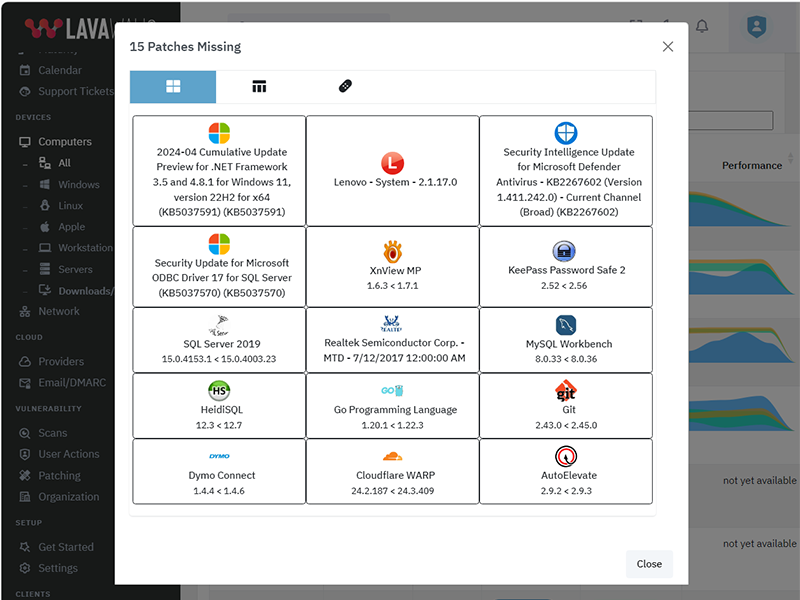
Application Patching
Some of the applications that Lavawall® monitors and audits include:
Logos are property of their respective trademark holders and are not affiliated with ThreeShield or Lavawall. We have not audited the security of most of the listed tools.
The above listing includes products that Lavawall® monitors through public information and/or proprietary statistical analysis.
Although we do have a partner relationship with some of the listed products and companies, they do not necessarily endorse Lavawall® or have integrations with our systems.
Learn More

Flexible Term; Flexible Service
Flexibility for your dynamic business
You need to get your arms around compliance and security and don't want to get locked into “high watermark” monthly invoices or multi-year contracts.
Pay-as-you-need monthly pricing
DIY, full management, and coaching options
Choose the plan that's right for you
Simple pricing. No hidden fees. Advanced features for you business.
Month
Annual
Get 2 months free with Annual!
Minimal
Pay-as-you go. No Commitments.
C$3.25 /computer/Month
C$32.50 /computer/Year
-
1 computer
or 1 of the following cloud integrations:
AWS, Axcient, Datto, Google, Huntress, M365, Sophos Central integrations
(each integration counts as 1 computer) -
50+ application patches
-
30-day Logs
-
Security configuration monitoring
-
Lavawall® support
-
Domain Scanning: C$20/domainDomain Scanning: C$200/domain
-
Level 3+ IT support for IT
-
IT coaching sessions
-
Automatic discount and upgrade to Business Standard at 77 devices
Business Standard
Basic services with 90-day logs
C$250 /Month
C$2,250 /Year
-
150 computers
Additional computers: C$2.50/computerAdditional computers: C$25/computer -
25 domains
Additional domains: C$15/domainAdditional domains: C$150/domain -
AWS, Axcient, Datto, Google, Huntress, M365, Sophos Central integrations
-
7,438+ application patch monitoring
-
90-day Logs
-
Security configuration monitoring
-
Lavawall® support
-
Level 3+ IT support for IT
-
IT coaching sessions
-
Automatic discount and upgrade to Full Service at 950 devices
Full Service
Optimize & audit-ready your IT
$2,250 /Month
$22,500 /Year
-
1,500 computers included
Additional computers: C$2/computerAdditional computers: C$20/computer -
125 domains included
Additional domains: C$10/domainAdditional domains: C$100/domain -
AWS, Axcient, Datto, Google, Huntress, M365, Sophos Central integrations
-
7,438+ application patch monitoring
-
365-day Logs
-
Security configuration monitoring
-
Lavawall® support
-
L3 IT support for IT
-
IT coaching sessions
Frequently Asked Questions
If you can not find answer to your question in our FAQ, you can always contact us or email us. We will answer you shortly!
General Questions
- Two years after a missing Plex Media Server led to the LastPass breach, the
Remote Monitorign and Management (RMM) tools availabel for Manged IT Service Providers (MSPs)
still didn't monitor for it.
Going through industry-specific applications, we noticed many were missing from the big RMM and patching providers. MSPs, insurance providers, and organizations that put their cleints at risk need to know about these risks, which lead to the largest number of critical audit findings and breaches - After 20 years of writing the same audit findings about system configurations, Payment Card Industry (PCI) compliance, and missing patches, our technical co-founder wanted to make it easier fo avoid these findings
- The existing risk visibility tools for insurance underwriters took a shallow look at Internet-facing risks. They -- along with all businesses -- need a deeper view of the threats that could actually lead to breaches.
- Domain risks
- Operating System (OS) patches
- Application patches
- Network vulnerabilities
- Cloud vulnerabilities
- OS configurations
You can use your own logo for the console and notifications. You can also use a CNAME to automatically brand your console.
Note: you cannot currently re-proxy the CNAME to Lavawall® through Cloudflare.
Lavawall® supports the following operating systems:
Lavawall® does not currently support non systemd distributions, such as Devuan, Artix Linux, PCLinuxOS, OpenWRT, and DD-WRT. However, we will support them by the end of 2024.
In June 2024, we combined the Windows and Linux systems for a consistent experience. This added support for RedHat and MacOS.
Privacy & Security
However, we do allow passwords and use passwords as part of the zero-knowledge encryption for your clients' sensitive data, such as Bitlocker keys and Personally-Identifiable Information (PII).
These passwords use Argon2id slow hashes with individual salts and peppers. They go through a few hash rounds on your computer before being sent to our servers for further hashing.
We have added an additional secure tunnel that mimics the TLS process within the public TLS tunnel. This extra tunnel provides authentication and privacy for the workstations and the Lavawall® servers to prevent attacks such as the one that took down Solar Winds.
Remote access is not enabled for read-only and audit situations.
Get In Touch
Have a quick question and don't want to talk? Send us a quick note with the form below and we'll reply within one business day.
NW Calgary:
ThreeShield Information Security Corporation
600 Crowfoot Crescent N.W., Suite 340
Calgary, Alberta
T3G 0B4
SE Calgary:
ThreeShield Information Security Corporation
105, 11500 - 29th St. SE
Calgary, Alberta
T2Z 3W9
Canada

